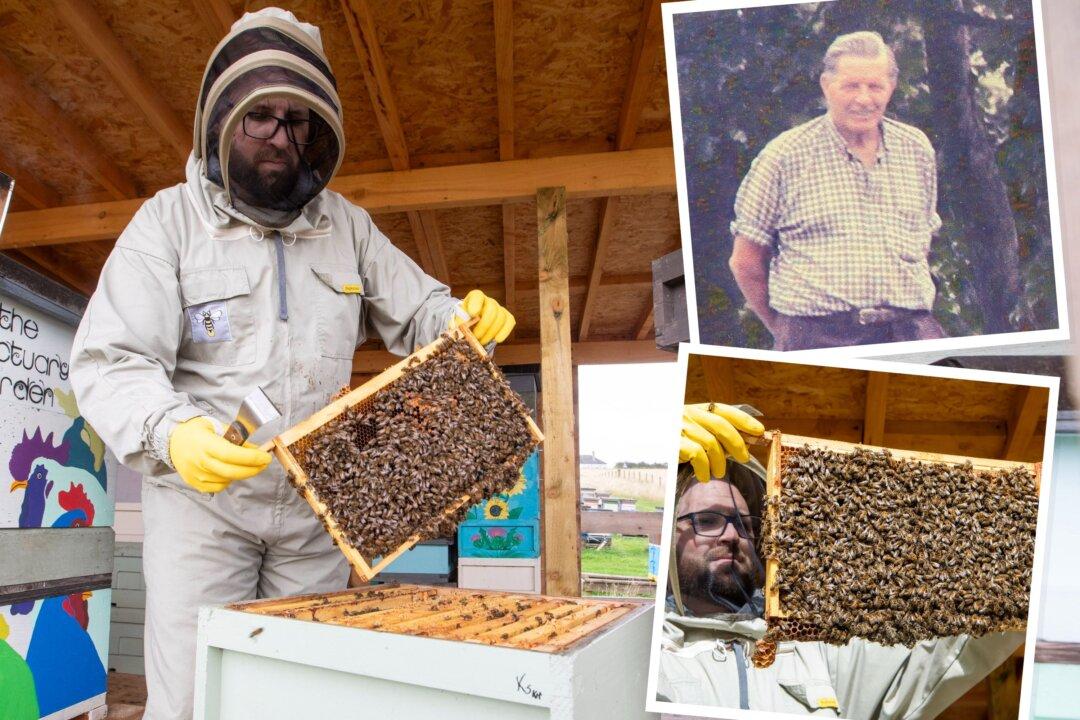An elderly couple who found secret World War II German-coded messages under their floorboards are trying to crack the puzzle with the help of a neighbor—a 95-year-old Bletchley Park code breaker.
During a renovation project, John and Val Campbell, of Guernsey, discovered a cache of wartime items hidden in their house by a German soldier in the 1940s.





